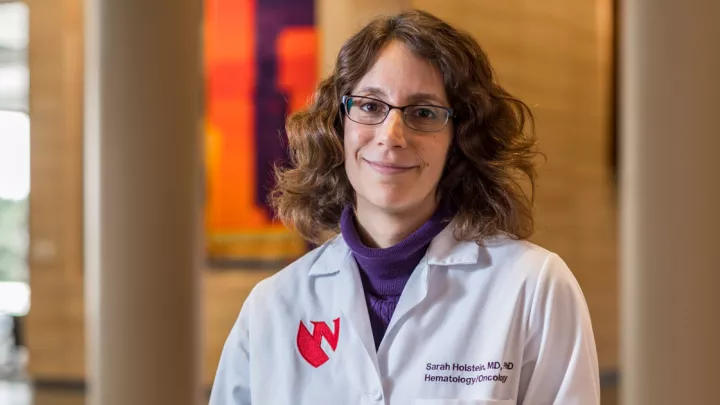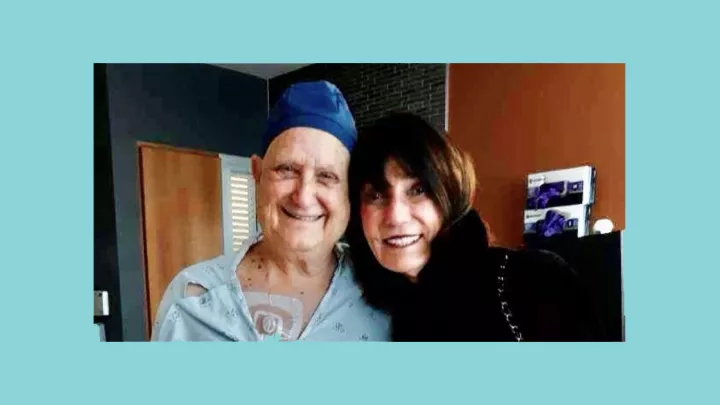The role of palliative care: Personalized support for patients

Palliative care provides an extra layer of support for a person experiencing cancer or another serious illness. The role is deeply personal – it depends on each patient, their family and what they're going through.
Palliative care specialist Melissa Teply, MD, listens to each patient and their loved ones, and brings their needs back to their care team. "It's important for me to stay humble and stay curious. Every patient is different, so there's not a one-size-fits-all approach," she says.
Some patients just need help with their symptoms. One aspect of palliative care is managing medications to reduce pain or nausea. Dr. Teply says, "Sometimes we spend a whole half hour just talking about constipation! I do whatever I can to improve patients' day-to-day lives."
Dr. Teply also helps patients focus on what is most important to them. For someone with incurable cancer, finding ways to be present with loved ones in the future – even if it can't be in the way they would hope – is powerful. "In the midst of what feels like losing everything, this is a way people can give something to their loved ones they will have forever," says Dr. Teply.
For one man, his gift was taking treasured family photographs. From him laughing and hugging his two kids to displaying his wedding rings in an open Bible, his family will always appreciate these heartfelt photos. Planning and taking the pictures were a result of Dr. Teply's discussions with this man and his wife about what mattered to them as a family.
Palliative care specialists can help every step of a patient's journey. The American Society of Clinical Oncology (ASCO) recommends that doctors ask about palliative care needs shortly after a cancer diagnosis.
But palliative care is not hospice. The role of palliative care is to improve a patient's experience, no matter their prognosis. According to ASCO, palliative care typically increases survival. Dr. Teply says, "Palliative care helps patients get exceptional cancer treatment paired with personalized, effective symptom treatment. Listening to patients' stories and validating their experiences is so personally fulfilling."







